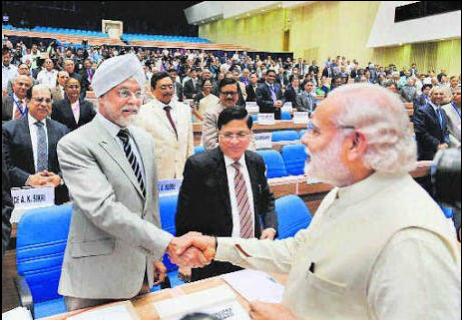The Supreme Court has observed that if people don't exercise their voting rights, they have "no right" to question or blame the government either.
This observation came after Dhanesh Ieshdhan, an activist from a Delhi-based NGO 'Voice of India', admitted before the court that he has never voted in his life and it did not go well with the apex court.
Having pointed out that the Supreme Court cannot pass a sweeping order on encroachments in a matter involving all states, the bench headed by Chief Justice J S Khehar said: "One can't blame the government for everything. If a person does not cast his vote, then he has no right to question the government."

Justices N V Ramana and D Y Chandrachud, who were also in the bench, said as they are located in Delhi, it is not possible for them to look into all encroachments and advised the petitioner to approach the high courts first if he plans to approach the judiciary over encroachments on the road.
Ieshdhan had approached the Supreme Court to get a blanket order to remove encroachments. He alleged that governments take no action against such encroachments. But when he kept on pressing for a blanket order to remove encroachments from across the country, the Bench enquired whether he has ever voted. On hearing the answer in the negative, the court made its observation.
"We do not have so much power to order a clean sweep of encroachments. If we pass any order, then cases of contempt and other petitions will pile up. It's not possible," the Bench added.

The apex court has further emphasised that due to its 'limited capacity', neither can it do several things it wants to nor can it cannot order the establishment of 'Ram Rajya' in the country.
"Do you think with our directions, everything will be done? Do you (petitioner) think we will pass an order that there will be no corruption in the country and all corruption will go? Should we pass an order that there will be 'Ram Rajya' in the country? It cannot be like this," the apex court had observed on August 26, 2016.















